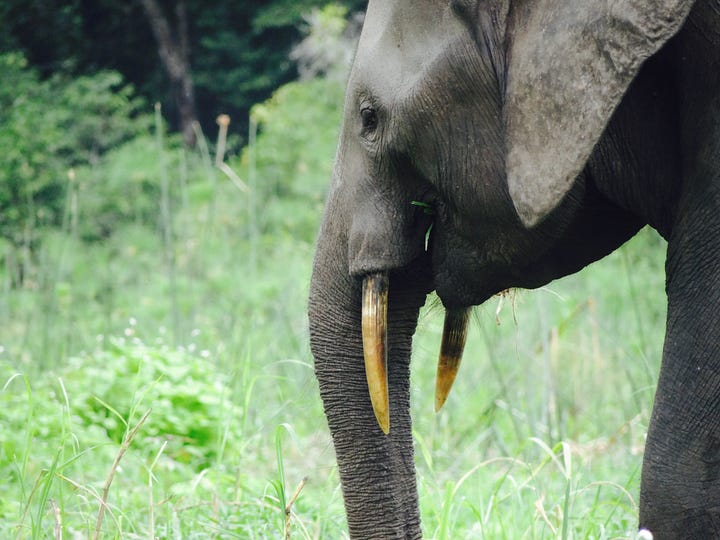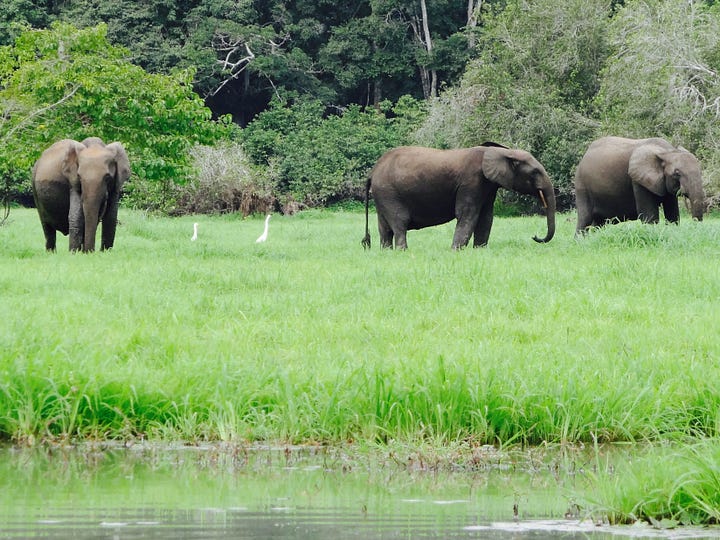The Last Refuge of Critically Endangered African Forest Elephants
Journey to Gabon, the last refuge of the elusive forest elephant, where political will, pristine topical forests, and the courage of rangers hold the line against extinction.
📍 Loango National Park, Gabon
Ivory poachers have turned most of the Congo Basin into an elephant graveyard. But one country has taken bold steps to become the exception: Gabon. This central West African nation is the last best hope for the African forest elephant, with up to 70 percent of the remaining population calling this country home.
Gabon's conservation is a result of intentional choices. It is one of the few countries on Earth that is carbon negative. With 90 percent of its land covered in forests, mostly protected, all those trees sequester more carbon from the atmosphere each year than one-third of France's total emissions. This forest cover, combined with Gabon's small population of two million people mostly living in cities, creates space for epic and untrodden national parks with the strictest conservation on the continent.
Politicians don't always get the green thing, including in countries with far greater resources, but here in Gabon, they do. It helps that there's a National Climate Council answering directly to the chief executive. Parks get real funding, not lip service. The proof? Dung sampling reveals over 50,000 elephants, the world's highest concentration, roam the country's uninterrupted woodlands. These are not the same elephants and other East African safari hotspots. Those big-eared icons of the savannah are 'only' endangered according to the International Union for Conservation of Nature and Natural Resources (IUCN). Meanwhile, the forest elephants of Gabon are 'critically endangered' – one step from extinct in the wild. They breed more slowly, making them less likely to bounce back from population declines; their tusks curve downward, not out, and their ears have a distinctive oval shape.
Gabon has political instability, and its president was overthrown in a military coup in 2013. But compared to the broader region, it has fewer scars from war and greed. This is good news not just for the elephants, but for the Congo Basin's ecosystem overall. These gentle giants are the gardeners of the tropical forests. They disperse seeds that facilitate the growth of canopy species and clear areas for diverse elements to thrive. Without them, whole forest ecosystems unravel.
In Gabon, the survival of forest elephants hangs in a delicate balance—relying on the country's ongoing stability, its political resolve, and the valor of those rangers who confront the poaching threat head-on. The stark contrast between the well-being of Gabon's elephants and their kin across the wider Congo Basin is a stark reminder that human choices matter.






